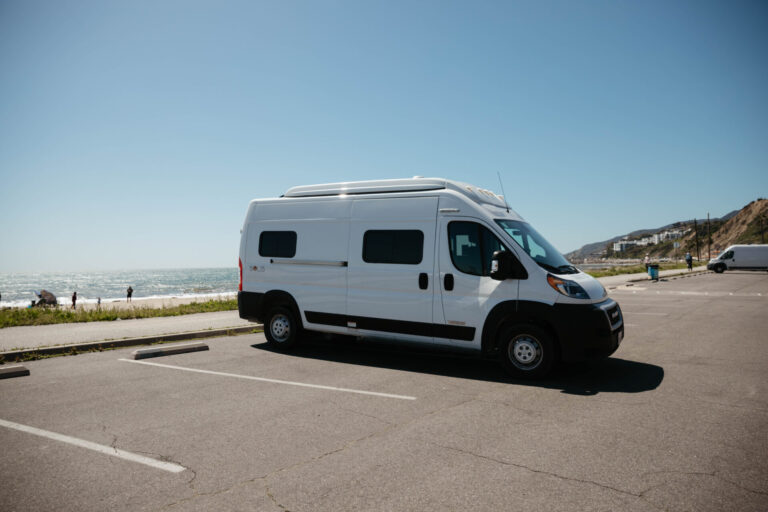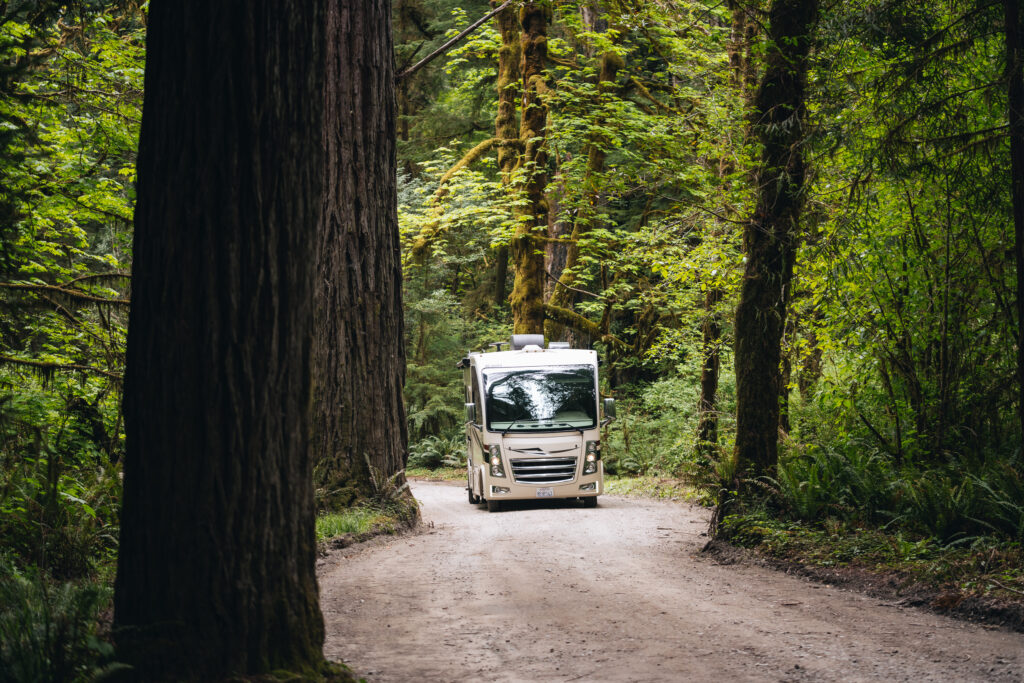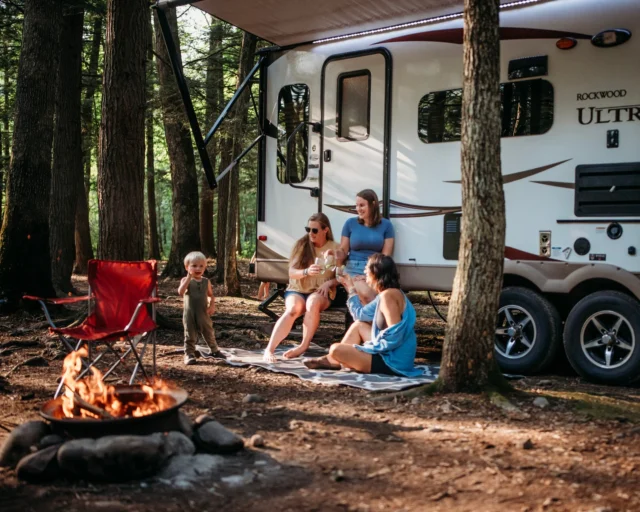
Unless you live in California, which has the highest statewide sales tax in the country, you may not even consider that little charge at the end when you’re purchasing things. Sales tax tacked on to a purchase like a T-shirt, or a good novel to read on your travels, or a trinket you pick up along the way, can be pretty small. However, when your purchase is as big as an RV, that charge is more than a nuisance – it’s a big price consideration. Add in registration fees, and your overall price on your RV could be a lot more than you thought by looking at the sticker. With that being said, sales tax on RVs is something that should not be ignored.
So, are there ways to bring that price down? Can you avoid some of those huge fees that hit you at the end of a purchase?
In what state can you buy an RV with no sales tax? Is that even allowed? Let’s take a closer look.
It’s important to note, however, that to get the most up-to-date information that’s pertinent to your particular case, you should consult a lawyer who specializes in tax issues.
What States Have No Sales Tax on RVs
There are currently five states that have no sales tax at all. These are Alaska, Delaware, Montana, New Hampshire, and Oregon. The states with the lowest combined state and local sales tax rates are Hawaii, Wyoming, Wisconsin, and Maine.
However, if you buy a vehicle in one of those states, you will likely have to pay for the sales tax in the state where it’s registered.

RV Sales Tax by State
Four of the states mentioned above – Alaska, Delaware, New Hampshire, and Oregon – don’t let you register your vehicle there if you don’t live in that state.
Montana, however, has a loophole when it comes to no sales tax on RVs. If you establish an LLC in Montana, owners can register their vehicle as a business vehicle in the state, thus avoiding paying sales tax. Montana also has very low registration fees, another reason many people register there.
If you’re going to do this, it’s important to go through a law office. Tax matters can be complicated and a good lawyer is usually the best bet.
So how are you allowed to register your RV in Montana if you don’t live there? Many RV buyers make this work by establishing an LLC in Montana and registering their RV as a business vehicle. Most people go through a law office in order to do this. With all tax issues, it’s crucial that RV owners find good legal counsel to help them make the right decision.
South Dakota
is another popular state for purchasing and registering RVs. Purchasers in South Dakota are charged a 4% excise tax, which is much lower than most states. South Dakota has low registration fees as well. The state also has no state income tax and a low sales tax (4.5%) and it’s easy to establish residency in the state. Thus, many RV owners will register their vehicles in South Dakota also.
Some warnings:
Although it is legal in Montana to establish your LLC and avoid some taxes and other charges, other states – shockingly! – don’t like losing out on that tax revenue. Many of them have been working to close that loophole. Several states including California, Iowa, Massachusetts, Minnesota, Nebraska, and Wyoming are careful to enforce sales tax on any vehicle that was purchased in another state and brought to theirs within a certain time frame. Other states have legislation to prevent their citizens from registering vehicles in other states as well. State troopers are also rumored to keep an eye out for RVs registered in Montana. It’s best to be sure your paperwork is in order if you need to present it to authorities. In some places, people guilty of evading sales tax on their vehicles can even be imprisoned for the offense.
If you’re a full-time RVer without a permanent home in another state, looking at an LLC or residence in Montana could be an option for you. However, if you have an established home in a different state, there are ways those states ensure you have paid the appropriate sales and registration fees on your vehicle. Be sure to consult a tax expert on all of these matters to be certain you have followed the correct procedure.
FAQ Sales Tax on RVs
Which states do not have sales tax on RVs?
States that do not have a general sales tax, such as Montana, Alaska, Delaware, Oregon, and New Hampshire, generally do not impose sales tax on RV purchases.
Are there any specific requirements to benefit from no sales tax on RVs in these states?
Requirements can vary by state. In some cases, you may need to establish residency, while others may allow for out-of-state purchases. It’s important to research and understand the specific rules of each state.
Can I buy an RV in a tax-free state if I don’t live there?
Some states may allow out-of-state residents to purchase an RV without paying sales tax, but it’s crucial to understand the residency requirements and any potential implications for doing so.
What if I live in a state with sales tax but purchase an RV in a tax-free state?
You may be subject to use tax in your home state, which is similar to sales tax but is imposed on the use, storage, or consumption of taxable items purchased out of state.
Are there time limits or restrictions on how long I must stay in a tax-free state to avoid sales tax on an RV?
Some states may require a minimum residency period to qualify for tax exemptions. Research the specific residency requirements of the state where you plan to make the purchase.
Do I need to register the RV in the state of purchase to avoid sales tax?
Registering the RV in the state of purchase may be a requirement in some cases. It’s essential to understand the registration and titling process, as well as any associated fees.
What documentation do I need to provide to qualify for sales tax exemption on an RV?
States may require various documents, such as proof of residency, a valid ID, or other specific forms. Check with the state’s tax department for a list of required documentation.
Can I finance the RV and still avoid sales tax?
Financing the RV doesn’t necessarily impact the sales tax exemption, but it’s important to understand the financing terms and any potential tax implications.
What penalties could I face if I fail to comply with state tax laws when purchasing an RV?
Penalties for non-compliance can vary and may include fines or other consequences. It’s crucial to fully understand and adhere to the tax laws of the relevant state.
RVshare
Finally, if you’re going to take a break from traveling for a while, don’t leave your RV just sitting in your driveway! One great way to recoup some of those fees you paid when purchasing your RV is by renting it out. RVshare is the perfect place to do that!
RVshare allows you to earn back some of the costs associated with your RV. They have verification processes in place, along with liability and comp insurance coverage to ensure that your vehicle comes back to you in great shape. You’ll also have the satisfaction of knowing you’re providing another explorer, or couple, or family, with the ability to venture out and see the country as you have in your RV. You’ll meet new people who will be excited and grateful for the experience of using your RV to make their own memories. In fact, you could be responsible for the trip a family remembers for a lifetime!
More helpful RV information:
What is the Best Month to Buy an RV






